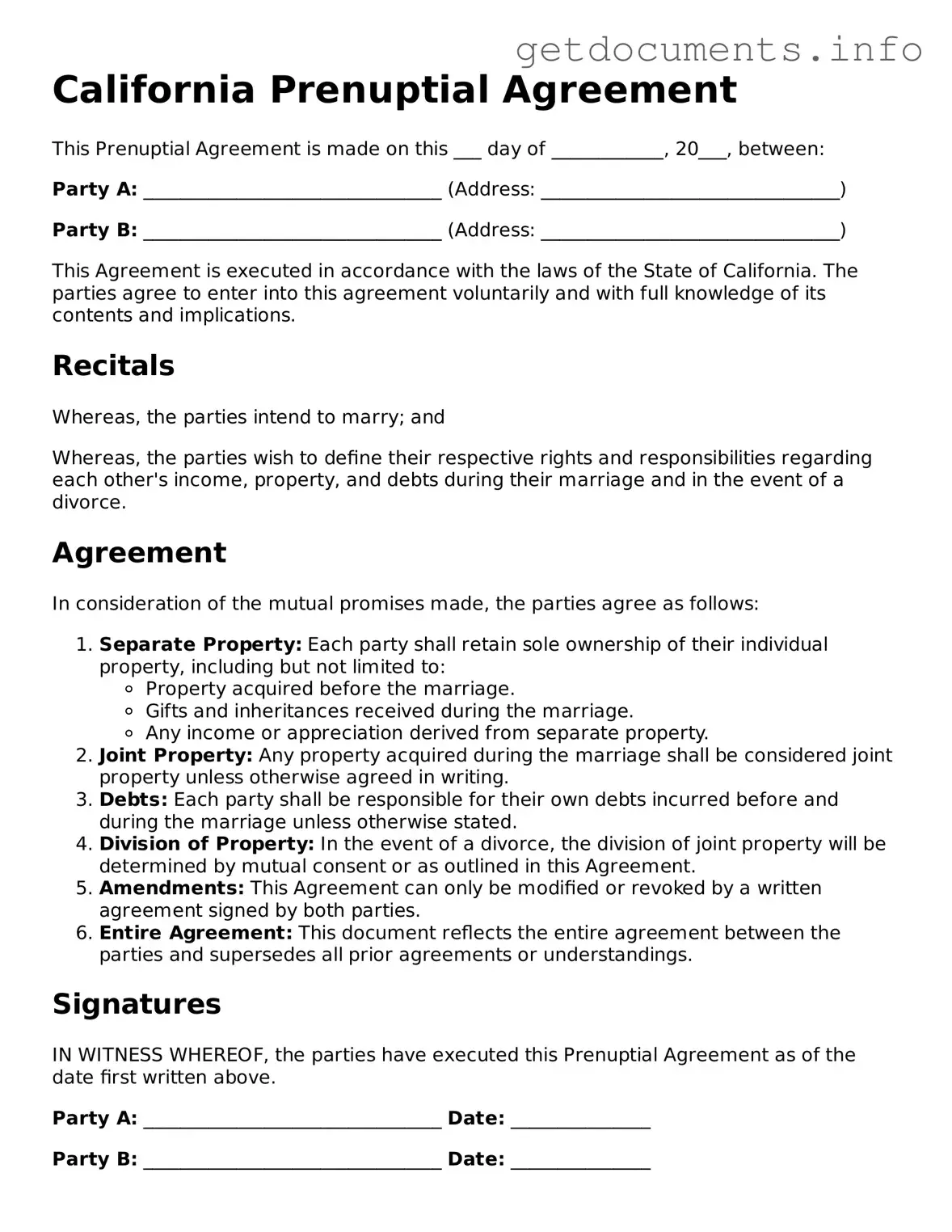Free Prenuptial Agreement Template for California
A California Prenuptial Agreement form is a legal document that couples use to outline the division of assets and responsibilities in the event of a divorce or separation. This agreement helps to clarify financial expectations and can provide peace of mind for both parties. To get started on your own prenuptial agreement, fill out the form by clicking the button below.
Access Prenuptial Agreement Editor

Free Prenuptial Agreement Template for California
Access Prenuptial Agreement Editor
Got places to be? Complete the form fast
Fill out Prenuptial Agreement online and avoid printing or scanning.
Access Prenuptial Agreement Editor
or
⇩ PDF File
